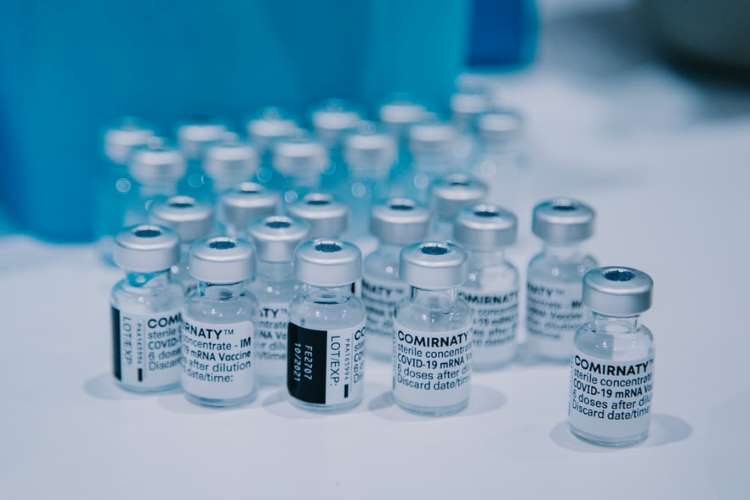Covid-19 pandemic: The end of 2019 brought grim news for the world as coronavirus started to spread from its origin country China to the rest of the globe, bringing the whole world down in a matter of a few months. What the world witnessed during those months and a dozen more to follow was unprecedented in the minds of the living population and no one could have imagined a pandemic at such a scale.
Millions died, the world economy shattered, global supply chains went into disarray, and the global healthcare system reached a breaking point. All of this clubbed together was nothing short of havoc and India too had its share of miseries as it suffered with the rest of the world. Coming back to 2022, is it safe to say all of this is over?
Current Covid-19 situation
There is a rise in coronavirus cases again in the country and the increase in infections in the Capital New Delhi has brought back fresh concerns for the government. The health experts and the government alike are now calling for reinforcement of strict rules given the lax attitude of the general public. Delhi and six states have been put on alert with the guidelines to amp up testing.
ALSO READ: New drugs Bill: Govt must balance needs of pharma business with public interest
Meanwhile, a new sub-variant of Covid’s Omicron variant was also detected in New Delhi. The new sub-variant has been identified as BA-2.75 has more transmissibility and infects even those with antibodies. However, as most of the knowledge regarding the coronavirus is evolving, there is no understanding as of now as to how badly these new variants will react.
As most of the population have received their two doses and the country is currently running a booster dose drive, the government is also not in favour of introducing another lockdown. Recently, New Delhi Chief Minister Arvind Kejriwal said that while Covid cases are on the rise in Delhi, there was no need to panic as most new cases were mild in nature. Last year around this time, India had just come out of the deadly second wave of the coronavirus infection which was caused by the Delta variant.
Lax attitude despite rising Covid-19 cases
India currently has 1.28 lakh active cases of coronavirus infections, according to the Union health ministry data updated on Wednesday. While the Covid-19 cases are once again on a rise, the initial fears regarding the fatality rates have subsided. These fears peaked during the second wave of the pandemic in which the government drew ire from public and foreign media alike for its mishandling of the pandemic.
What has led to this lax attitude towards the pandemic now? While the second wave saw much deaths and in turn instilled fear into the minds of the general public, the later strains and mutations of the virus were milder and caused less severe symptoms due to which people started to take the pandemic lightly. The government also relaxed the rules regarding mandatory masking etc and with people receiving a second dose of vaccination, there was a general consensus that the worst part of the pandemic is already behind. The same attitude continues to date.
Vaccination also resulted in a lesser chance of deaths upon contracting the infection, which meant the general public continued their affairs with a laissez faire attitude.
ALSO READ: Brewing trouble: Climate change can aggravate threat of pathogenic diseases
World Health Organization (WHO) demographers and epidemiologists believe that an estimated 32 lakh Indians died in the pandemic between June 2020 and July 2021, most of them during the second wave last year. New Delhi’s official death toll stands at 480,000.
Vaccination story
On July 17, India splashed big numbers for the vaccination drive and the government announced that it had administered two billion doses of vaccination against the coronavirus. It is a gigantic figure and a moment of satisfaction for the government, which has been under the scanner globally for the high mortality rates in the pandemic.
So are Indians now safe from the coronavirus? For a large part, India now appears to be better protected against the virus as a total 927 million Indians are vaccinated. According to Our World In Data, 75% of the population has received at least one jab of the vaccine, while 68% are fully vaccinated. The country recently made the booster dose free for adults to incentivise vaccination.
This comes at a time when the public is no longer interested in getting jabs and according to a statement by Union commerce minister Piyush Goyal, the vaccine story is almost over as there is over-capacity. India currently has a vaccine stock which is expiring. He also said that vaccines have already lost relevance, even while countries in the world are grappling to secure supplies even at heavily inflated rates.
Way forward
While the general public has in their minds started to consider coronavirus as merely flu-like infection, it remains to be seen how infectious will the virus be once immunities start to wane. The next stage of the pandemic remains highly uncertain.
Meanwhile, another public health emergency is looming over the world with another virus outbreak. With monkeypox cases crossing 14,500 and emerging in a vast number of countries, WHO is meeting again whether to declare it a public health emergency of international concern. While the monkeypox is not as fatal as the coronavirus, it still poses concerns, given the experience of the Covid-19 pandemic.

